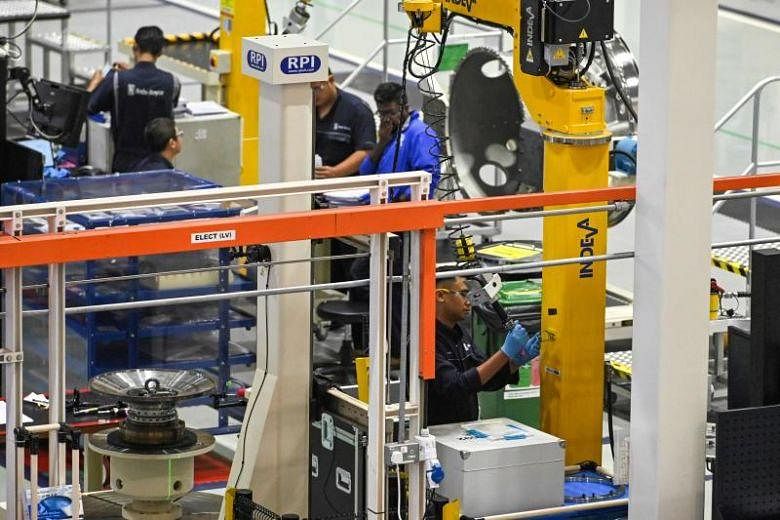Singapore's economic outlook for the rest of the year looks a bit more dismal after another set of disappointing figures from the manufacturing sector yesterday.
They showed that factory growth slowed again last month and followed a dip in May - the first contraction in more than 2 ½ years.
The sting yesterday came in the form of the Purchasing Managers' Index (PMI), a key barometer of activity in the manufacturing sector.
It slipped to 49.6 last month, down 0.3 points from May. A reading above 50 indicates expansion; one below points to a contraction.
The electronics sector PMI shrank for an eighth consecutive quarter, coming in at 49.2, 0.2 points lower than in May.
United Overseas Bank economist Barnabas Gan said the PMI number "reinforces our view that Singapore's economic prospects have worsened to date".
The Singapore Institute of Purchasing and Materials Management (SIPMM) compiles the index by surveying around 150 companies.
Ms Sophia Poh, SIPMM vice-president for industry engagement and development, said: "Anecdotal evidence suggests that several manufacturers are working on growth plans in the midst of the global trade uncertainties."
The weaker reading for manufacturing was due to first-time contractions in new orders, factory output, inventory and employment levels, the SIPMM said yesterday.
Maybank Kim Eng economist Chua Hak Bin told The Straits Times that the contraction "suggests that the downturn will persist into the third quarter".
"Hopes for a second-half growth recovery are slowly being written off," he added. "The manufacturing recession is deepening, with the trade war broadening to tech."
Dr Chua added that Maybank Kim Eng's gross domestic product (GDP) growth forecast is at 1.3 per cent for the year, below the Government's full-year estimate of 1.5 per cent to 2.5 per cent.
The electronics PMI was hit in part by fewer new orders.
The latest factory numbers come at a time when manufacturing activity worldwide has notably slowed due to escalating trade tensions.
Contractions have been seen in economies such as China, Japan, South Korea, Malaysia and Taiwan.
Still, Mr Robert Carnell, ING's chief economist and head of research for Asia-Pacific, said Singapore is doing better than the big electronics economies of Taiwan and South Korea, noting that the PMI decline here since last year has been less pronounced than the other two economies.
He believes that the roll-out of 5G - the fifth generation of cellular network technology - will be key to a much stronger global manufacturing outlook.


